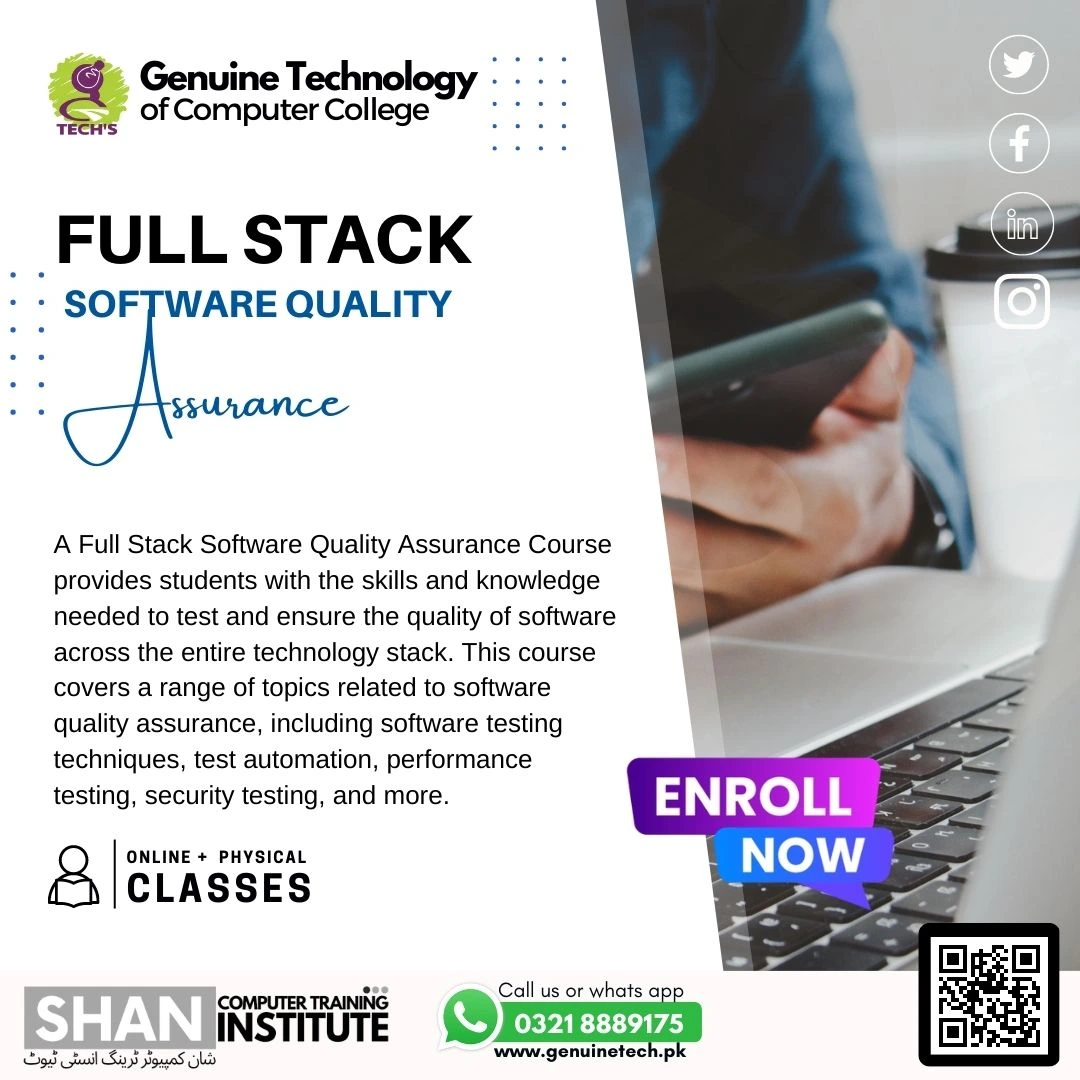The College > Blog > A Full Stack Software Quality Assurance Course
A Full Stack Software Quality Assurance Course
What course should I take for quality assurance? - shan
Full Stack Software Quality Assurance Course provides students will the skills and knowledge needed to test and ensure the quality of software across the entire technology stack. This full stack software quality course covers a range of topics related to software quality assurance, including software testing techniques and many more you can start your career as a full stack software quality assurance expert in any organization and earn a lot of money the main topic of this course may include;
- Basic concepts and principles of testing software
- Importance of test planning and documentation
- Automation tools and frameworks
- Security Testing test software for vulnerabilities and security risks
- Testing Methodologies such as manual testing and functional testing
- Types of Performance testing
This computer course starts with an introduction to software quality assurance, including software testing different testing methodologies such as manual testing, functional testing, regression testing and many more this is one of the best computer course for boys in Pakistan upon the completion of this computer course you can start your career in software quality assurance and secure your future in IT field. In companies as a software quality check expert, it is your responsibility to check the software maintenance by debugging and testing its working and if there is any error is present in it you can mention it and forward it to full stack developers.
Best Full Stack Software Testing Training Course in Pakistan
At Genuine Tech you can become a full stack software quality expert by working on real-world software testing projects under the supervision of an expert and in this best full stack software testing training course in Pakistan learn it from basic to an advance level course and secure your career in this IT field. In conclusion every candidate must learn these high in demand courses for their skill enhancement and career development.
You can read folio3.com article to get more information about full stack quality assurance.







